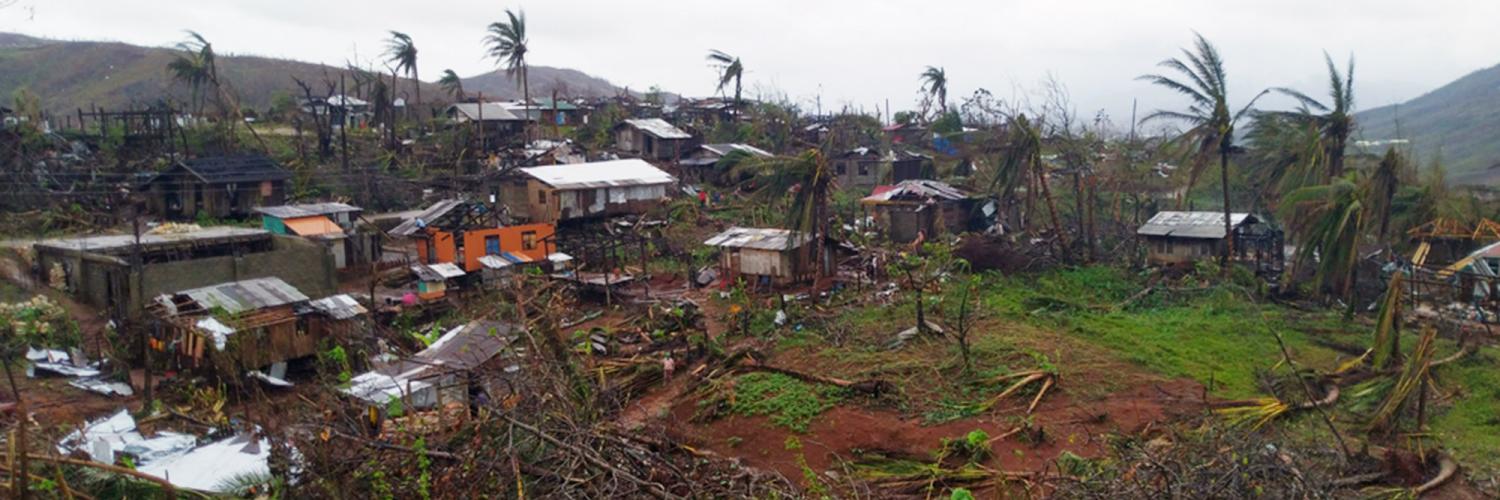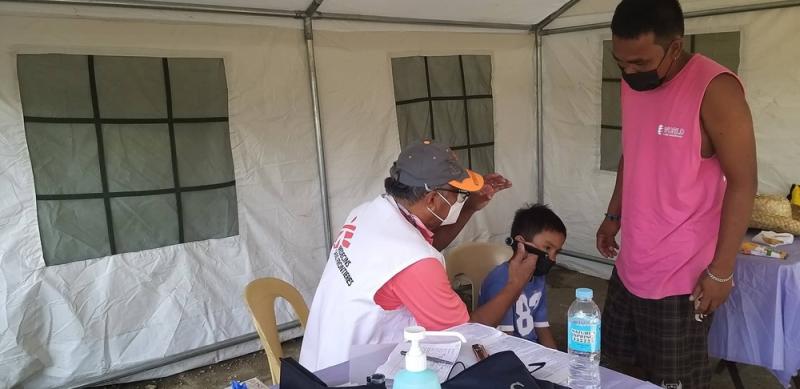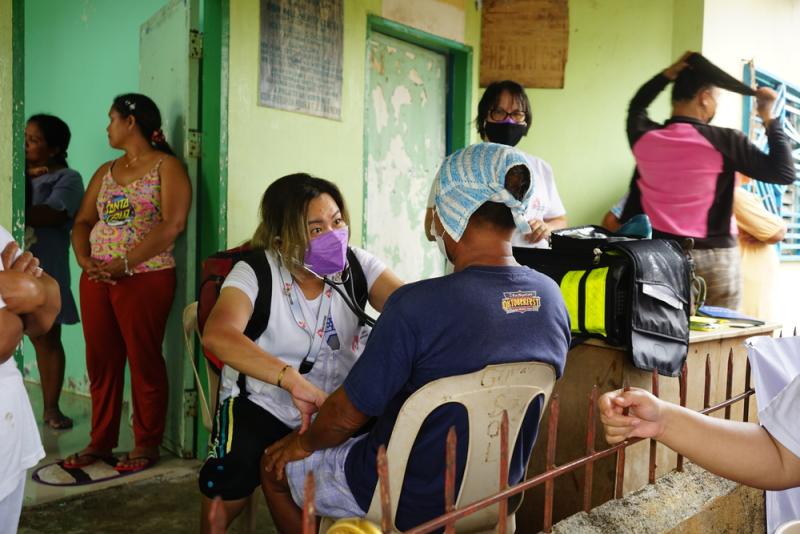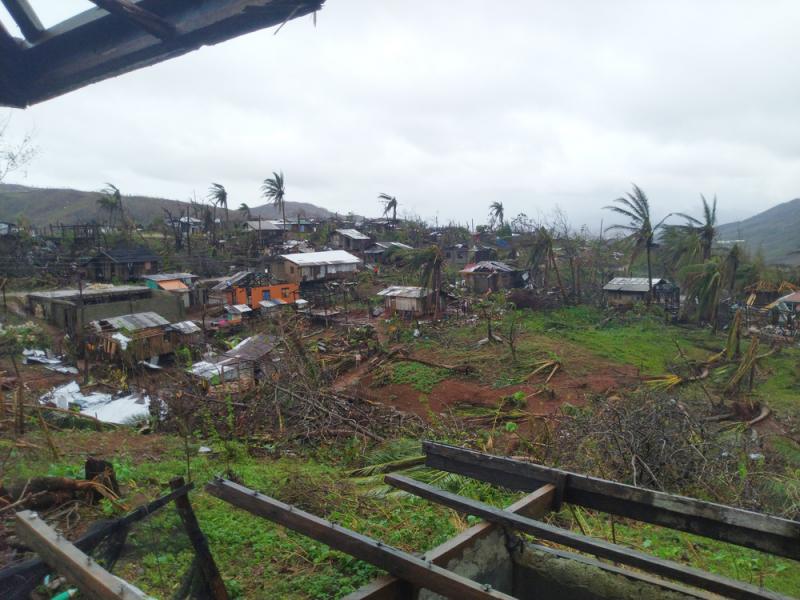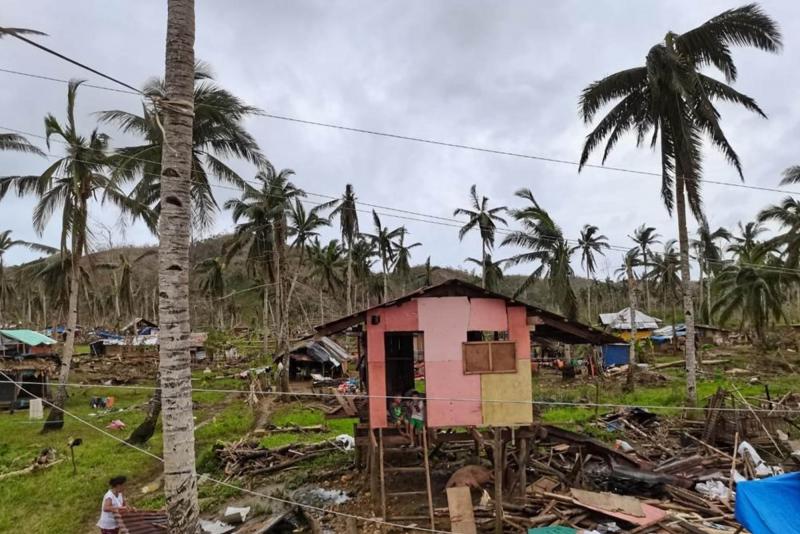Following assessments carried out between December and early January, Doctors Without Borders started an emergency intervention in mid-January on the remote island province of Dinagat, and the outlying islands of Surigao del Norte, some of the worst affected by Typhoon Rai, which have an estimated combined population of over 240,000 people.
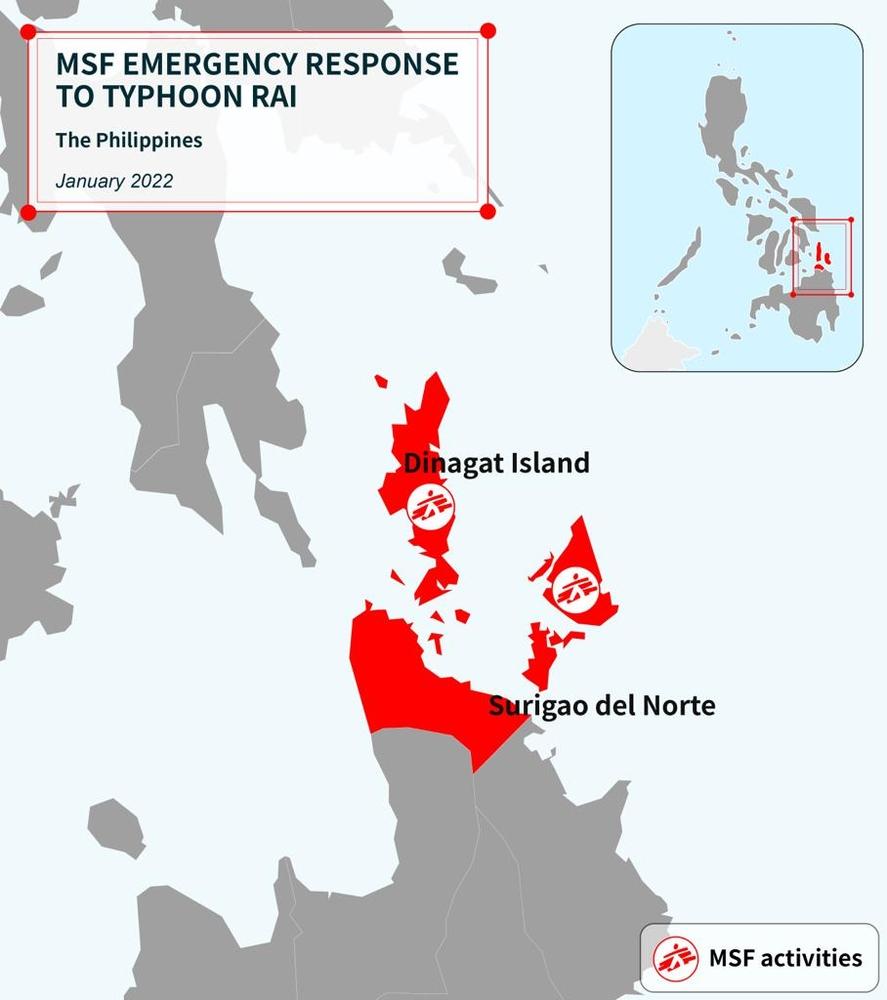
The province of Dinagat Island was severely impacted by the typhoon, with strong winds decimating houses and infrastructure, and cutting off power, water and telecommunications systems. Comprising one main island and 47 islets across seven municipalities, providing aid to those most affected across the province of Dinagat Island is a complex task.
Doctors Without Borders is focused on:
- Providing support and increasing medical staff capacity at DDH. This will offer reprieve to current staff who were affected by the typhoon while ensuring the continuity of medical services.
- Provision of mobile clinics with medical and mental health support in the outlying islands, especially those that are difficult to access and have not received medical support. The priority municipalities include Basilisa, Cagdianao and Dinagat.
- Provision of one sea ambulance to replace those that sunk during the typhoon and/or are under repair.
- Provision of carpentry kits for the repair of damaged houses and shelters.
- Distribution of hygiene kits which includes provision for safe water and storage, and prevention of mosquito-borne diseases.
Key figures
From 24-31 January:
- The first Doctors Without Borders mobile clinic started in Sering, Basilisa municipality. 106 patients were seen. The activity was supported by the Basilisa RHU and local health workers.
- Additional mobile clinics in Basilisa provided care to 391 patients with the majority of people presenting with upper respiratory tract infections (URTI) and non-communicable diseases.
- At Dinagat District Hospital, Doctors Without Borders staff saw 14 patients and assisted 2 birth deliveries.
- Five patients were referred which include a mother about to give birth, a possible tuberculosis patient, and 2 orthopaedic patients.
- 65 patients were consulted for mental health, including 17 individual sessions. Two patients needed psychological support, and another was referred to a psychologist for medical stabilisation.
Surigao del Norte is also one of the worst affected by the typhoon. The remote communities in the outlying islands need support as some of them have not yet received aid from other actors. MSF has already identified communities in the outlying islands that will receive hygiene kits.
Key figures
From 24-31 January:
- Distribution of hygiene kits to 539 people in four outlying islands of Surigao City.
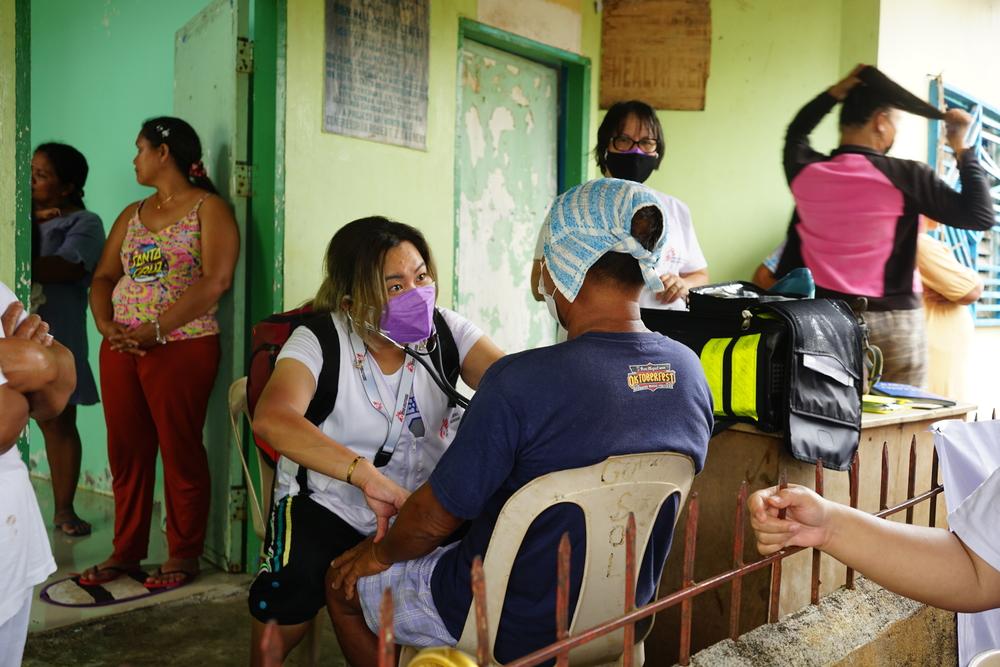
Dr. Chenery Ann Lim, Emergency Coordinator, checks on the sick and the elderly of Brgy. Cagutsan, Surigao City. Some complain of high blood pressure, while others report coughs and colds. Philippines, 2022. © Regina Layug Rosero/MSF
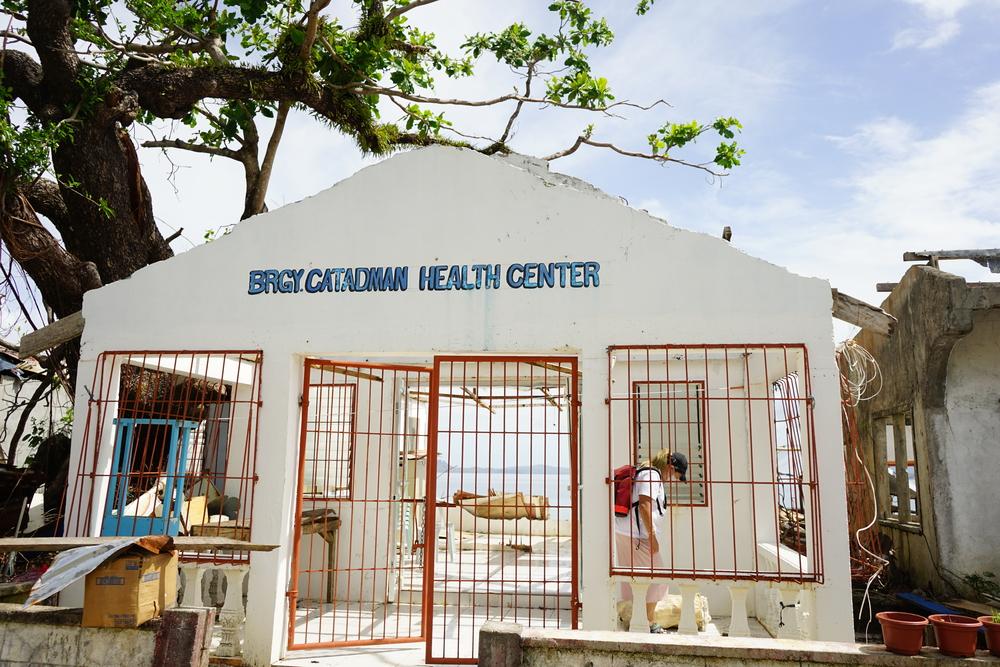
All that remains of the barangay health center are a few walls, a rusty weighing scale and a damaged examination bed. The roof was blown away by Typhoon Rai (local name Odette). Philippines, 2022. © Regina Layug Rosero/MSF
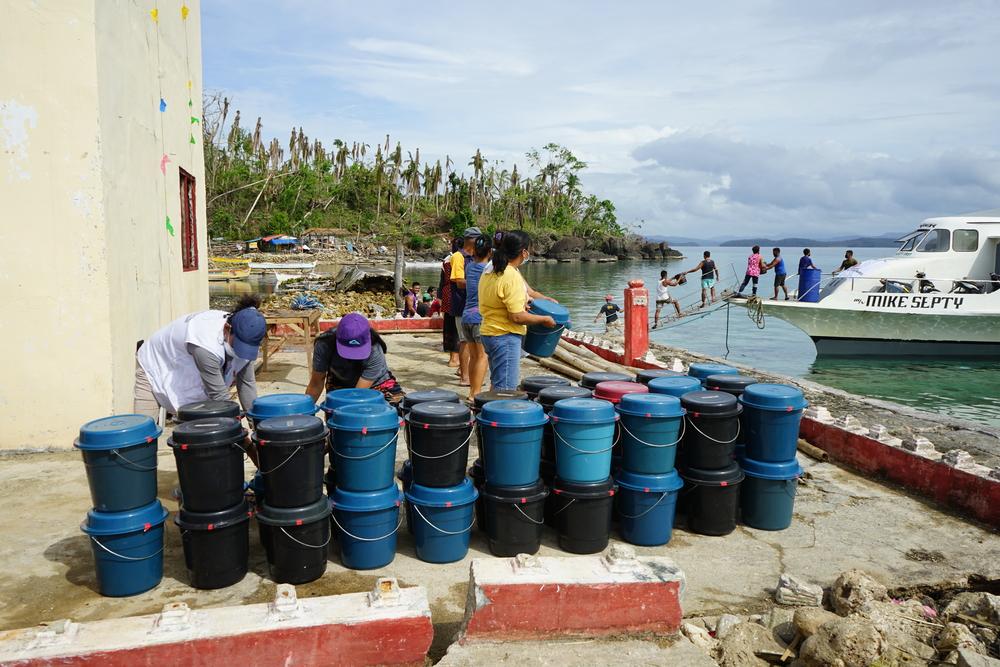
Doctors Without Borders distributed approximately 140 hygiene kits to the families of Barangay Catadman. To speed up the transportation of the kits from the boat, the villagers helped the crew and passed the buckets along a line. Philippines, 2022. © Regina Layug Rosero/MSF
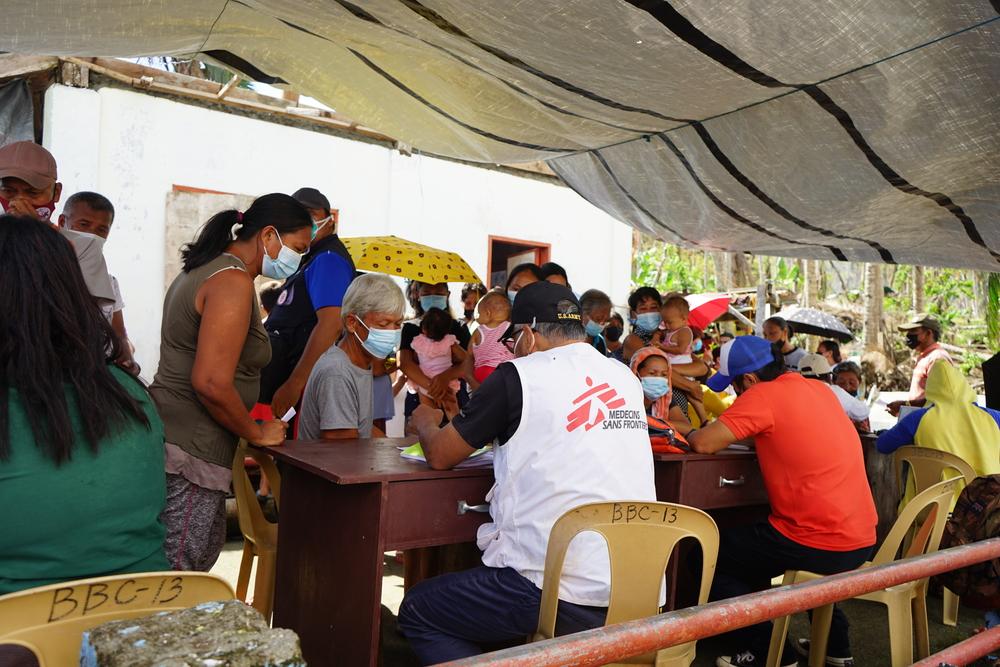
While the hygiene kits are being distributed, some villagers line up at the mobile clinic to consult with Dr. Raul Salvador, Medical Team Leader. Philippines, 2022. © Regina Layug Rosero/MSF
